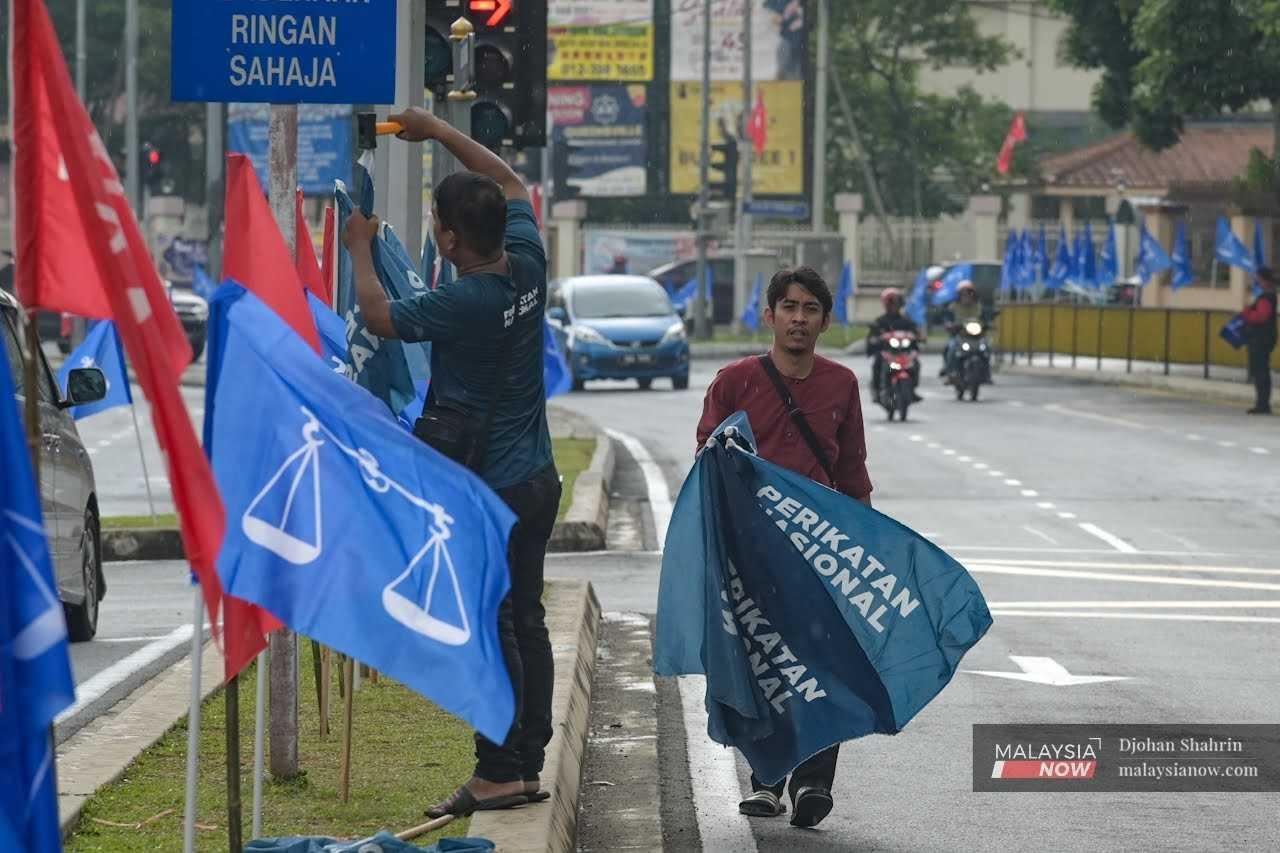PN runner-up for Malay votes as support for BN declines
However, nearly 30% of the Malay respondents polled indicated no preference or were undecided on their support.
Just In
Perikatan Nasional (PN) has emerged as the runner-up in terms of Malay votes as support for Barisan Nasional (BN) dips, the latest pre-election survey by independent pollster Merdeka Center shows.
The survey, conducted from Oct 19 to 28 among 1,209 voters aged 18 and above, found Malay support for BN at 32%, followed by PN (20%), Pakatan Harapan (PH) (13%), and Gerakatan Tanah Air (GTA) and other pacts (2%).
A total of 29% said they had no preference or were unsure, while 4% did not respond.
Merdeka Center said the findings appeared to indicate a decline in overt preference among Malay voters for BN and a small increase towards PH.
"Yet at the same time, there remained as many as 29% of Malay voters who remarked that they had no preference or were still undecided," it said.
"It is possible that some of these undecided voters may still vote in favour of the ruling party, but past experience tells us that the majority of them will likely go to either opposing party, i.e. PN and/or PH."
Among the Indian voters, 32% indicated support for BN, 1% for PN, and 51% for PH. Some 6% were unsure and 2% said they had no preference for any party while 8% did not respond.
Among the Chinese voters, meanwhile, support for BN was at 5%, PN 1%, PH 47% and GTA 1%. A total of 23% said they were unsure and 18% indicated no preference while 3% refused to answer.
Across age groups, voters in the 18 to 20 bracket indicated 28% support for BN, 24% for PN, and 30% for PH. A total of 10% said they had no preference.
Those aged 21 to 40 indicated 21% support for BN, 14% for PN and 26% for PH, while voters over the age of 40 marked 27% support for BN, 10% for PN and 24% for PH.
For both these age brackets, 16% said they had no preference for political party.
The majority of voters – 72% – said the country was headed in the wrong direction while 20% said Malaysia remained on the right track.
Concerns included the state of the economy, political uncertainty due to the upcoming election, and other issues such as corruption and race.
A total of 74% said the economy was the biggest problem at the moment while other concerns ranged from inflation (31%) to political instability (13%), corruption (12%) and economic growth (12%).
The approval rating for the federal government stood at 31% with 60% indicating dissatisfaction, while the approval rating for the caretaker prime minister was at 42%.
In terms of factors behind voting choices, 31% said they were focused on local candidates followed by party (21%) and national leadership (13%).
First time voters aged 18 to 20 were twice as likely to look at national leadership (24%) than the rest of the electorate.
Regarding candidate characteristics, the top desirable features were "someone with good ideas for the country" (27%), "clean and trustworthy" (24%) and "able to bring development to the area" (13%).
Younger voters placed more emphasis on "clean and trustworthy" (34%) and less on the candidate's ability to "bring development" (4%).
"In our opinion, the presence of three significant coalitions with large bases of support as well as uncertainties on likely turnout rates make it difficult to estimate the outcome in terms of projected number of parliamentary seats," Merdeka Center said.
"At this point in time, with the lower-than-expected level of Malay voter support for BN, it is possible to imagine that no single coalition will attain a large enough plurality to form a government with just one other party or coalition.
"Instead, there is a rising possibility that at least three or more parties/coalitions are needed to cooperate to form a government with a simple majority."
The racial demographics of the survey were Malay (52%), Chinese (29%), Indian (7%), Muslim Bumiputera (6%) and non-Muslim Bumiputera from Sabah and Sarawak (6%).
Respondents were selected randomly and from each of the country's 222 parliamentary constituencies.
Subscribe to our newsletter
To be updated with all the latest news and analyses daily.
Related Articles
Most Read
No articles found.
